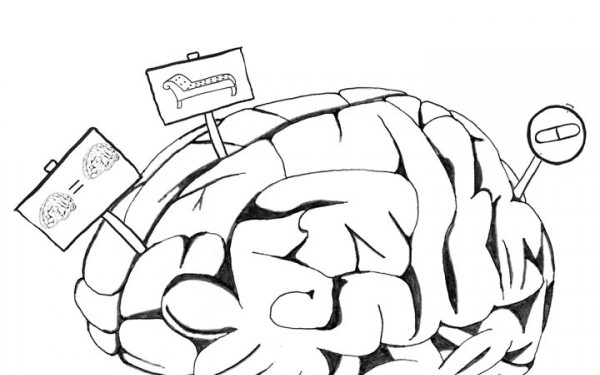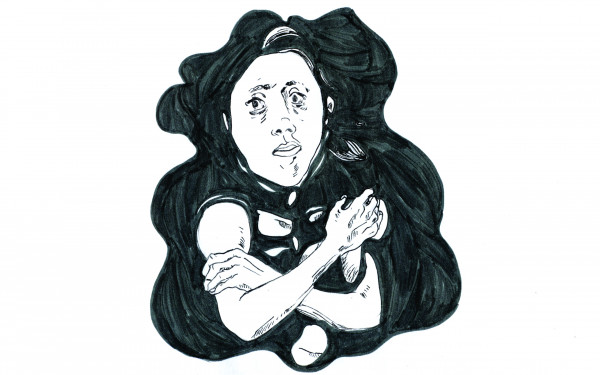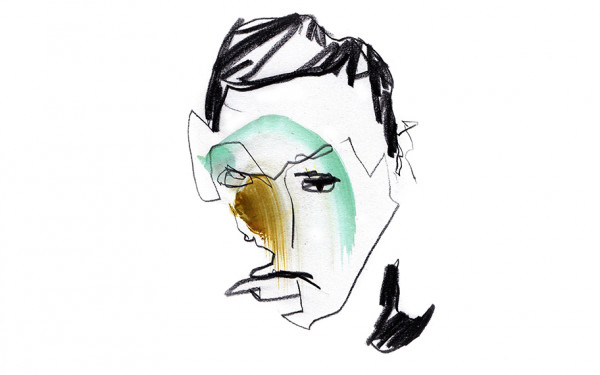Mental Squeeze
Healing with Suicidal Ideation
I didn’t have plans to kill myself when I walked into Concordia Health Services three weeks ago—but I was having difficulty coping with being alive.
For weeks, I had been captive to thoughts about how exhausting life was, and questions of whether it was worth it.
In psychology, this is known as passive suicidal ideation.
“Suicidal ideation is the first step in suicidal thoughts,” said Stephanie Bate-Dubé, a former Distress Line Operator at the Canadian Mental Health Association. “It can often be an abstract idea … There’s not necessarily an active desire to kill oneself.” It’s the notion that if you fell asleep and didn’t wake up, or had a terminal illness, it might be for the best.
Most people who have passive thoughts like these won’t act on them, but there is a danger often overlooked. If someone with a healthy outlook suddenly starts wondering what being shoved in front of a subway train would be like, they could backslide further into being a physical danger to themselves.
“The distinction comes from when it starts to warp from [passive] suicidal ideation into actually having a plan for suicide,” Bate-Dubé said. “It is always the first step to more suicidal thinking.”
Both passive and active suicidal ideations are symptoms of clinical depression.
When my PSI started it wasn’t constant. It was absent when I was busy with schoolwork or friends, only showing up in idle moments. I didn’t think there was anything wrong, but I also had a deeply entrenched sense that I shouldn’t tell anyone. I didn’t want to worry them. I didn’t think it was a big enough deal.
Bate-Dubé said that in her work at the distress line, many people she assisted had already attempted suicide in the past, and were experiencing suicidal ideation again.
Even though I wasn’t thinking about suicide, PSI worked against me in other ways. Daily necessities like eating and showering seemed tedious. My fridge was slowly occupied by crusting dishes instead of groceries. I had constant digestive issues because I wasn’t eating. Sleeping was easy—waking up was starting to become disappointing.
Even as I became the walking dead, I was still doing my schoolwork.
“Students [are] an age group where a lot of mental issues come to the forefront—especially because university is a very stressful time,” Bate-Dubé said. “People who haven’t necessarily dealt with mental health before are suddenly dealing with depression or anxiety or thoughts of suicide.”
Although it’s believed that mental illness is caused by many factors, if someone has it in their family, they’re at higher risk of developing one. What’s more, a study from Cornell University found that 7.5 per cent of students starting university with no mental illness in their history developed some symptoms over the course of their academic careers.
Concordia has a student body of about 46,000, so while earning their degrees, 3,450 Concordia students will develop some mental health problems—that’s not including those who were diagnosed before starting post-secondary.
“There’s a lot of pressure to do very well in university and sometimes students can see non-existing or dying to get out of that pressure without disappointing anyone,” - Stephanie Bate-Dubé
“There’s a lot of pressure to do very well in university and sometimes students can see non-existing or dying to get out of that pressure without disappointing anyone,” Bate-Dubé added. Suicides make up 24 per cent of deaths in Canadian youth from ages 15 to 24, according to the Canadian Mental Health Association.
Eventually, PSI started taking over everything in my life—even my grades. A professor pulled me aside to ask why I had almost failed a quiz. I lost five pounds in a week. Friends and strangers alike noticed that there was something wrong. I booked a doctor’s appointment.
Three weeks after, I found the courage to say it aloud. “It’s not that I’m thinking of killing myself, but…”
Things have improved. It’s not easy, but I’m on my way back to feeling okay. Bate-Dubé had some advice for people experiencing PSI.
“Don’t panic, but also be aware of it,” she advised. “It doesn’t mean that there’s anything terribly wrong. It could just be a sign of something to keep an eye on. This isn’t something you should ignore.” She emphasized the importance of a solid support system.
“Tell somebody, whether it’s a counsellor, a friend, or your parents, because it could get worse, and in that case you’re going to need better help.” Better help could be anything from peer support, to seeing a psychologist, or in more severe cases, medication.
I did everything wrong, right until I reached out. If there’s anything to be taken away from my experience, it’s that this is not something to be ashamed of, and asking for assistance is a sign of strength.
“Often people associate suicide with weakness,” Bate-Dubé said. “It doesn’t mean that you’re failing at something that everyone else is doing well. It’s a sign of mental illness, but it’s not a judgment on you. It doesn’t affect your value as a person.”







